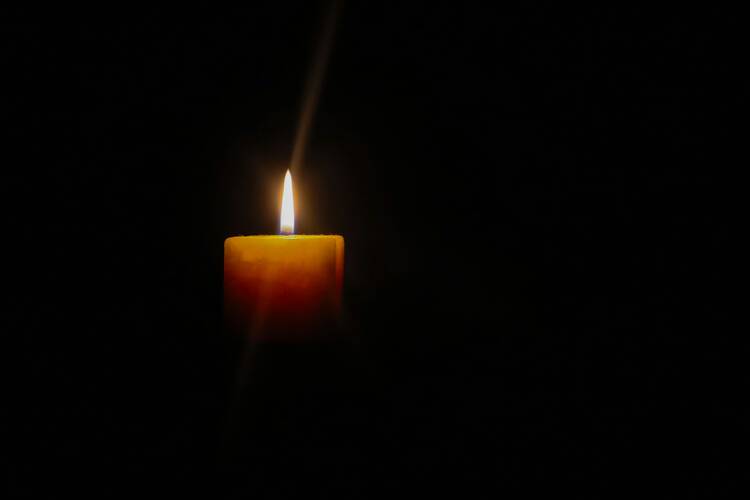A Reflection for Friday of the Sixth Week of Easter
Find today’s readings here.
“When a woman is in labor, she is in anguish because her hour has arrived;
but when she has given birth to a child,
she no longer remembers the pain because of her joy
that a child has been born into the world.” (Jn 16:20-23)
My grandma passed away in October 2024. She lived in Antigua, and I traveled with my family from my home Brooklyn to attend the funeral. My grandma was the first family member I had buried. The experience of burying a relative is something that unites people everywhere: Nearly everyone has lost someone they loved.
Two traits defined my grandma: memory and stubbornness. Her mind was blessed with vivid recollection—of experiences, places, math (for some reason.) And she could remember anyone, no matter how long it had been since she had seen them.
Then came her stubbornness. She was mainly bedridden, and it was always an uphill battle to try to get her to go anywhere. Beaches, road trips, or simply going on a walk with her was a massive achievement for anyone who succeeded. Yet, it was that same stubbornness that drove her to create lasting memories with everyone she met.
I still remember, in particular, our conversations about school. When we talked on the phone, she always focused on my life in school. “How are you doing, Ruddy?” she would ask. “How’s your nephew? How’s being a senior?” She would ask me those questions everytime she got the chance to speak with me. That was our little activity, those question and answer sessions. Through our phone calls, I would keep her up to date on my life.
Even after her departure from this life, it feels almost as though she never left. It still seems like she is walking by my side.
In today’s reading from John, we see Jesus empathizing with the pain of human struggle:
When a woman is in labor, she is in anguish because her hour has arrived.
He also tells those who suffer that their struggles and tragedies are worth it for the salvation that comes later:
But when she has given birth to a child,
she no longer remembers the pain because of her joy
that a child has been born into the world.
This mourning is going to hurt. But I can confirm that the hurt does pass. It took months for me to move beyond the pain of my grandma’s loss. Over those months, I found friends and talked with distant relatives, all of whom helped me cope with her death.
In the process, I also changed how I looked at my passion for writing. I had previously thought of writing as a way to leave behind a legacy, as saying, I was here. This is what I had to say, this is who I was. Now, I see writing as more than just building my own legacy. It is about remembering the legacy of others, such as my grandma.
Some people praise God for his good works, or for being both divine and human. They worship him because he is like a king or a prophet. I praise God because he can understand us. He speaks to us in the form of those who knew us best, like a deceased relative. Eventually we will be with our loved ones who have passed. And they are also watching us. We cannot see them, but we can take comfort that God is with them. I believe my grandma is up there in heaven, watching over me and smiling wide like she always did. With her teeth gleaming white, and the rays of the sun reflected on them like a window.








